
On this day, July 12, 2013, the Oregon Fish and Wildlife commission adopted provisions of a lawsuit settlement that will make the state the only one in the West where killing wolves that attack livestock must be a last resort.
 Post an Event
Post an Event
| TILLAMOOK COUNTY FAIR - 100 YEARS OF PIG N'FORD |
| Wednesday, August 6, 2025 at 10:00 am |
| The Tillamook County Fair received its recognition as one of the top ten Blue Ribbon Fairs in the nation due to its uniqueness; offering so much for fairgoers to enjoy free along with their paid admission. Fairgoers can enjoy all of the Open Class and 4-H/FFA exhibits that Tillamook County residents have prepared the year prior, free entertainment and concerts, live exotic animal displays, and a whole lot more!
FOR MORE INFORMATION
tillamookfairoffice@gmail.com
(M-F, 8 AM-5 PM) at (503) 842-2272.
Reminders:
NO OUTSIDE FOOD OR DRINK
All bags are subject to search
For the safety of all present, only trained service animals are permitted to enter Fairgrounds property. A trained service animal is any guide dog, signal dog, or other animal individually trained to do work or perform tasks for people with disabilities. |
| 4603 East 3rd Street
Tillamook, OR, 97141 |
“Most everyone is against tollingâ€
The Clackamas County Board of Commissioners adopted values related to funding interstate projects in the region at their recent meeting.
Chair Tootie Smith said it was important to be a leader in this discussion. “Regional conversations are happening about how our transportation system will be funded that will significantly affect the residents of Clackamas County,†said Chair Smith. “We need to be a leader at the table and ensure the needs of our residents and businesses are represented.â€
Depleted transportation funding at the state and federal level -- due to declining gas tax revenue as vehicles become fuel-efficient—are leading to funding gaps in building projects on the interstate system to reduce congestion and improve seismic resiliency. In response to the declining transportation revenues and growing congestion, the Oregon Legislature directed the Oregon Department of Transportation to study and implement tolling for managing congestion through House Bill 2017.
ODOT is planning tolling projects within Clackamas County along Interstate 205 near the Abernethy Bridge – an area that has little transportation options other than driving.
Given ODOT has the existing authority to implement tolling and continues advancing the concept of congestion pricing tolls to manage congestion on interstates, a values-based approach, rather than a traditional support or oppose position, allows Clackamas County to be proactive and nimble as discussions continue.
A D V E R T I S E M E N T

A D V E R T I S E M E N T
The transportation funding values adopted by the BCC prioritize equity, safety, a vibrant economy, health and active communities, climate action, disaster resilience, and the reliable movement of people and goods.
Vice-Chair Paul Savas said, “Most everyone is against tolling. No one wants to pay for something they believe they are already paying for just to go to work or take their kids to school. However, if the legislature insists on tolling or congestion pricing, Clackamas needs to be in a leadership position to assure our residents receive benefit for the toll they pay. These values should get us there.â€
ODOT is nearing completion on the designs for the I-205 Widening and Seismic Improvement Project within Clackamas County, which will add a new lane in each direction of I-205 between Stafford Road and Highway 213, as well as upgrading the Abernethy Bridge over the Willamette River to withstand an earthquake. The Oregon Legislature is currently considering ways to finance project construction to begin early next year. As part of this effort, ODOT is pursuing tolling the project as a means of raising revenue, as well as using congestion pricing to curb traditional travel behaviors.
--Staff Reports| Post Date: 2021-04-15 15:10:14 | Last Update: 2021-04-15 15:34:27 |
“She was a pioneer and a fierce advocate for the vulnerableâ€
The Senate Rules Committee heard moving commemorative testimony from many people who were touched by Senator Jackie Winters. The Committee passed a resolution,
SCR 10 recognizing her life and legacy unanimously.
Jackie Winters represented the Salem area for two decades before succumbing to lung cancer at the age of 82. She was the first African-American Republican elected to the legislature and the first African-American caucus leader in Oregon history.
“I miss my friend, Jackie,†Senate Republican Leader Fred Girod (R-Lyons) said. “She was a pioneer and a fierce advocate for the vulnerable and communities in need. Jackie was larger than life, and her spirit, dedication, and courage impacted more than she could have ever known.â€
SCR 10 now moves to be considered before the entire Senate.
--Staff Reports| Post Date: 2021-04-15 14:39:26 | Last Update: 2021-04-15 15:10:14 |
The fireworks continue
In a deal struck late Wednesday night, House Democrats have agreed to make the representation on the House Committee on Redistricting equal between the parties and have promoted State Representative Shelly Boshart Davis (R-Albany) to co-Chair on that committee, effectively giving Republicans a veto over decisions made regarding redistricting.
In exchange, House Republicans have agreed to waive the constitutional requirement to have every bill read in it's entirety before it is voted on -- something which is normally done each session.
The agreement follows on weeks of slow escalation in the chamber, as Republicans have done procedural measures to slow the pace of legislation, as Democrats have responded by increasing the length of floor sessions so as to pass more bills. Democrats have been moving bills with fewer number of pages to the floor, in hopes of keeping legislation moving, but had begun to run short of smaller bills and would have to start moving longer bills to the floor.
State Representative Mike Nearman (R-Independence) warned of what's coming. “Fasten your chinstraps,†he said. “The speed of legislation is going to get fast and the tone of the legislation is going to make a hard turn left.â€
The first bill to be considered this morning was
HB 2954 got bogged down in a procedural tactic, known as a minority report, in which the Republicans propose a substitute for a bill on the floor. It took over an hour to pass the bill.
The fireworks continue.
--Staff Reports| Post Date: 2021-04-15 10:32:54 | |
“There’s a longtime cultural divide as big as the Grand Canyonâ€
Freedom is coming to a neighborhood near you.
This week, in a joint meeting of the Idaho Senate Resources and Environment committee and the Idaho House Environment, Energy, and Technology committee, lawmakers heard a proposal to incorporate much of rural Oregon into Idaho.
Rural Oregonians have felt increasingly dominated by urban decision makers in the Oregon Legislature. Years of attacks on agriculture and natural resource businesses, and overreaching decisions dominated by legislators from Portland Metro, have pushed the rural urban divide to the breaking point. “There’s a longtime cultural divide as big as the Grand Canyon between northwest Oregon and rural Oregon, and it’s getting larger,†Mike McCarter, President of Move Oregon’s Border for a Greater Idaho, told Idaho lawmakers.
There once was a time that the Oregon Legislature was more balanced. During the 2001-2003 sessions, the Democrats controlled the Senate, and the Republicans controlled the House. The Speaker of the House at the time was Mark Simmons, a veteran legislator from Rural eastern Oregon. He was also the last Speaker of the house from a rural Oregon District. Simmons traveled to Idaho this week to speak about moving the border, describing how it would strengthen Idaho by adding the deep-water port at Coos Bay to Idaho, making it less dependent on Oregon’s decisions regarding ports and the federal government’s upcoming decisions to perhaps eliminate locks on the Snake river. “Values of faith, family, independence. That’s what we’re about. We don’t need the state breathing down our necks all the time, micromanaging our lives and trying to push us into a foreign way of living.â€
The proposal made by the Move Oregon’s Border for a Great Idaho is simply a shift in borders that does not affect the balance of power in the US Senate. It does not create a new state or increase the number of states, and borders between states have been relocated many times throughout US history. If a deal were made that both the Oregon and Idaho Legislatures could support, a border change would almost certainly become a reality.
A D V E R T I S E M E N T

A D V E R T I S E M E N T
Idaho Representative Ben Adams (R-Nampa), said his interest was piqued but wondered why Oregon lawmakers would agree to the plan. “How is it being received right now by the state of Oregon?†Supporters of the border change let the Idaho lawmakers know that it is an ongoing conversation in Oregon and although there are currently no bills in the Oregon Legislature addressing the boundary changes, six counties (Baker, Grant, Harney, Lake, Malheur and Sherman) will be voting on the idea at the May Special District election. The outcome of that will be an indicator to the Oregon Legislature on the desire of rural communities to no longer be under urban Oregon lawmaker rule. “Before we can even begin to discuss the details, we have got to see a significant majority of counties in Oregon stepping up to support itâ€, Simmons shared.
The Democrats currently hold a supermajority in the Oregon House and a voting majority in the Oregon Senate, and they could potentially strengthen their position further by letting rural counties become part of Idaho. In addition, allowing rural counties to leave could be seen as an economic win for the remainder of the “new urban stateâ€. Rural counties tend to be areas that generate less property tax revenue and have lower wage paying jobs. In addition, much of the proposed land that would be redirected to Idaho is Federally owned which is sometimes seen as a liability on the state rather than an asset.
The Chair of the Idaho House committee, Representative Barbara Ehardt (R–Idaho Falls) seemed to agree saying, “With everybody moving to Idaho, it isn’t lost on me the addition of landmass, water, resources, agriculture, timber; there are some appealing things to Idahoans, at least in my estimation, to even consider this.â€
--Terese Humboldt| Post Date: 2021-04-15 10:28:12 | Last Update: 2021-04-16 09:58:58 |
It has made health care a viable option for more Oregonians
The Oregon House of Representatives passed a bill with bipartisan support that will preserve access to telehealth by maintaining the same level of insurance coverage as in-person doctor visits.
HB 2508 reassures health care consumers that their telehealth doctor appointments will continue to be covered by their insurance provider just like in-person visits.
Included in the provision are measures to review the implementation of telehealth to ensure that patients still receive the high-quality level of care that they deserve.
“We need to support this new level of access while we provide a thorough review of implementation to ensure that patients are well served and quality of care is maintained,†said House Republican Leader Christine Drazan (R-Canby.) “Telehealth is an important tool that we should maintain after the pandemic. It has made health care a viable option for more Oregonians lacking traditional access, and this is the kind of solution people need from their legislators while they continue recovering from a difficult year.â€
HB 2508 was approved on the House floor with bipartisan support.
--Staff Reports| Post Date: 2021-04-15 08:11:55 | |
Would be required for each county
Democrats in Oregon have now introduced legislation that will significantly increase costs of operating jails in each of Oregon's 36 counties. The exact cost is not yet known.
HB 3310 would require each county to have a facility jointly managed by sheriff and community mental health director to house and treat individuals with behavioral health disorders or intellectual or developmental disabilities who are in custody of county sheriff pending trial.
The bill is sponsored only by Representative Paul Evans (D-Monmouth)and is currently in the House Committee On Judiciary.
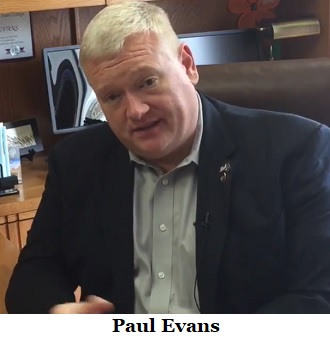
The bill contains the following details:
- Each county must have in operation a facility for the housing and treatment of individuals with behavioral health disorders or intellectual or developmental disabilities who are in the custody of the county sheriff pending trial. Each facility must have the capacity to treat all detainees from the community who are in custody and be staffed by behavioral health professionals from the community mental health program and the sheriff’s deputies. The facility shall be managed by the sheriff in partnership with the community mental health director.
- If a county does not have a community health program, the Oregon Health Authority shall provide behavioral health professionals for the facility and partner with the county sheriff in the management of the facility.
- The Oregon Health Authority may adopt rules governing the facilities to protect the health and safety of detainees and staff at the facility.
--Bruce Armstrong| Post Date: 2021-04-14 14:47:10 | Last Update: 2021-04-14 20:09:30 |
Pass ‘Guilty Until Proven Innocent’ Legislation
Senate Democrats charged forward with a plan to bulldoze principles of due process in the workplace.
SB 483 will create a presumption of guilt for employers accused of retaliation. The law would completely change accepted procedures of fairness.
SB 483 is sponsored by Senator Kathleen Taylor (D-Portland).
Discrimination and retaliation in the workplace have been illegal for decades. The existing ‘innocent until proven guilty’ system already allows employees to get justice if they have been wronged, evidenced by a 10-fold increase in OSHA complaints in the last year. SB 483 will presume that all employers are guilty of discrimination or retaliation even when the allegations are dubious, or the employee has filed an anonymous complaint. This would create a presumption when an employee alleges retaliation when they don’t get the shifts they want.
“This bill opens up employers to a wide variety of spurious allegations from employees and activist lawyers,†Senate Republican Leader Fred Girod (R-Lyons) said. “This would send struggling businesses’ legal expenses through the roof at the same time they are trying to recover from a year of devastating lockdowns. Let me be clear, discrimination or retaliation in the workplace is unacceptable. The remedy for it is not to rewrite the rules of due process.â€
Senate Democrats passed SB 483 along party lines. It now heads to the House of Representatives where they will have an opportunity to correct this terrible legislation.
--Bruce Armstrong| Post Date: 2021-04-14 14:28:42 | Last Update: 2021-04-14 14:47:10 |
Currently, it requires a visit to your doctor
A proposal,
HB 2648, from Representative Bill Post (R-Keizer) to allow the sale of pseudoephedrine products without a prescription passed out of the House Committee on Health Care this week.
This is the third time that Rep. Post has attempted to remove an unnecessary barrier for Oregonians to lower their health care costs when purchasing pseudoephedrine products. Products such as Sudafed will still be restricted to people who are at least 18 years of age with a valid ID under the proposal.
The impact on health care consumers’ wallets could be significant. Currently, purchasing a pseudoephedrine product requires a visit to your doctor to receive a prescription, which comes with an expensive bill.
“With health care costs skyrocketing, this simple bill to reduce the cost of a common cold medicine should be a no-brainer,†said Rep. Post. “We shouldn’t be asking people to jump through very expensive hoops by visiting a doctor to obtain a prescription to common cold medicine, especially when Oregon is the ONLY state requiring a prescription.â€
HB 2648 passed out of the House Committee on Health Care with bipartisan support.
--Staff Reports| Post Date: 2021-04-14 13:28:29 | Last Update: 2021-04-14 13:34:07 |
“The federal government needs to have some skin in the gameâ€
The Oregon Senate has approved
SJM 3, a memorial calling on the federal government to reimburse property owners for property damage that resulted from a fire that started on mismanaged federal forestlands. The memorial urges Congress to establish a program to give property owners this redress.
The federal government manages 60% of Oregon’s forestland. These federal lands are burning more land at a greater frequency. From 2000 to 2019, 15 of the 16 megafires in Oregon started on federally managed lands. In the last decade, 86% of burned forestland acres have been federal land. United States Forest Service Lands burn at nearly five times the rate of private and state lands.
Under state law, if a spark from your barbeque started a fire on your property and spread to federal land, you would be on the hook for the cost of the damage to federal land. If the fire starts on mismanaged federal forestland and destroys your property, there is no requirement for the federal government to compensate private landowners for damages.
SJM 3 brings accountability to the federal government who currently has no incentive to manage forests in a way that will decrease wildfire.
“This legislation recognizes that the federal government’s mismanagement of Oregon forestland has set the conditions for catastrophic wildfires,†Senate Republican Leader Fred Girod (R-Lyons) and author of the legislation said. “Republicans have been fighting for responsible management of our forests for decades. Unfortunately, this legislative effort comes after people have died and beautiful forests have been destroyed because of mismanagement. We must turn our focus to prevention. Without active forest management, catastrophic fires will continue to happen.â€
A D V E R T I S E M E N T

A D V E R T I S E M E N T
In 2020, wildfires in Oregon burned more than 1.2 million acres. The impact on communities across the state was devastating. More than 5,000 homes and commercial structures were destroyed. The 2020 wildfires threatened lives, businesses, homes, displaced thousands of Oregonians, and blanketed the state in dangerously high smoke levels.
In 2020 alone, the cost to fight the fires was at least $354 million. The total cost was even higher. FEMA has estimated that the cost of wildfire/wind damage, response, and debris removal is about $1.15 billion. As of January, Oregon has only received $32.2 million in FEMA Individual Assistance payments to Oregonians.
“The federal government needs to have some skin in the game when it comes to managing our forests responsibly. Oregonians also need to have redress when bad management takes their homes, property, and livelihoods,†Girod added. “I urge Congress to provide and fund an expedient and efficient system to fully reimburse state and local government property owners and especially private property owners for the damage that results from wildfires that start on federal land,†Girod added.
SJM 3 passed the Senate on a 29-1 vote and now moves to the House of Representatives for consideration.
--Staff Reports| Post Date: 2021-04-14 12:43:19 | Last Update: 2021-04-14 12:52:58 |
Describes wakeboarding issue as “longstanding hot potatoâ€
As reported in the Northwest Observer,
opponents of wakeboarding have put up a bill to change the makeup of the Oregon State Marine Board, and it was suggested that the proposed changes to the board were being made in order to tip the scales on the wakeboarding issue.
If you can't get the legislature to pass the bill clamping down on wakeboarding, change the makeup of the board and have the board do it.
I am Paul Donheffner, and I served as Director of the State Marine Board from 1984 to 2010, so I have more than a little experience working with the members of the Marine Board. HB 2695 is a radical and unnecessary makeover of the Board, which will have negative consequences for years to come.
The reason for this bill appears to be a nexus with HB 2555 and wakeboarding, which is a longstanding hot potato. In a desire to ban wakeboarding on the Willamette River, advocates want to dismantle and re-design the Marine Board to achieve their goals. This is not the right answer. The Board makes decisions based on the statutes created by the Legislature. If the Legislature has a better prescription for wakeboarding, it should set that in law rather than destroying the Board over this one issue.
Re-making the Board using identity politics and labels will not enhance the Board, but instead divide the Board into interest group camps and members who feel an obligation to represent their identity point of view rather than a broader public interest.
Board members serve as citizen volunteers, giving many hours of often thankless work for only mileage and per diem. Board members are vetted by the Governor's office and confirmed by the Oregon Senate. Under this bill as few as two members would actually be boaters, which is just plain wrong.
It is a mistake to exclude persons who might want to serve on the Board because they don't check a certain box. Or because that box is already filled. In addition, if you go down the rabbit hole of identity labels, then this bill fails to check off other groups with a stake. There is nobody representing law enforcement or search and rescue, representing guides or charter boats, representing active water sports, representing marine dealers or tourism, representing local governments, and so on.
And the Division of State Lands and DEQ do not need to serve ex-officio on the Board. Why not ODFW? OSP? State Parks? This quickly gets very unwieldy and political influence sets in. It is not a good model for a volunteer citizen board.
The Legislature should tackle wakeboard policy, but leave identity politics out of the Marine Board. Please vote NO on HB-2695.
--Staff Reports| Post Date: 2021-04-14 11:23:10 | Last Update: 2021-04-14 12:22:10 |
Spoiler alert: It’s about wakeboarding
Currently, the
Oregon State Marine Board is comprised of five volunteer members who are appointed by the Governor and confirmed by the Senate. Members serve a four-year term and may apply for a second term of service. Members represent different geographic regions of the state and different boating activities. Board members are also recreational boat owners of motorized, non-motorized or both types of watercraft.
Beneath the surface, and unknown to most Oregonians is a raging battle over a stretch of the Willamette River known as Newberg Pool. The battle is over wakeboarding. On one side are boaters who appreciate the deep, wide section of the river and it's use as a great spot for wakeboarding. On the other side are homeowners, concerned about erosion and paddle-wielding, radical environmentalists who won't stand for any vessel propelled by fossil fuels on their river.
For the last few legislative sessions, the wakeboarders have been surviving all attempts to legislate them out of existence. For instance, in the 2018 short session,
HB 4099 was introduced to prohibit person from operating motorboat with wake-enhancing device between river mile 30 and river mile 50 on Willamette River and requiring person to operate wakeboard boat at slow, no-wake speed between river mile 30 and river mile 50 on Willamette River. It was later amended to merely set up a task force to study the issue, but even that version died in committee.
This session,
HB 2725, introduced by Representative Brad Witt (D-Clatskanie), which provides that maximum loading weight of motorboat must be less than 4,000 pounds to obtain towed watersports motorboat certificate, authorizes State Marine Board to conduct study related to increasing prescribed maximum loading weight, and provides that person shall carry towed watersports endorsement if engaged in any towed watersports within Newberg Pool Congested Zone.
Now, desperate environmentalists are looking to
HB 2695, introduced by Representative Witt to remake the Oregon State Marine Board. The five-member Marine Board will be replaced by a ten member board, with eight voting members, as follows:
- (3) The Governor shall appoint the voting members, as follows:
- (a) One member with academic or professional expertise in riverine ecology, fisheries biology or environmental conservation;
- (b) One member who owns a floating home;
- (c) One member representing a recreational boating organization or who has substantial and current experience as a recreational boater;
- (d) One member representing a water paddling organization or who has substantial and current experience as a water paddler;
- (e) One member representing a recreational fishing organization or who has substantial and current experience as a recreational fisher;
- (f) One member who is a member of, or who represents, a federally recognized Indian tribe in this state;
- (g) One member of the public at large; and
- (h) One member who is a licensed outfitter and guide.
A board of this makeup has fewer boaters who might be expected to be sympathetic to wakeboarders and more members who come from communities -- or could be picked by the Governor -- who are not sympathetic to wakeboarders. this bill is widely seen as a move to give environmentalists more control over the river, and put recreational boaters in their place.
 --Staff Reports
--Staff Reports| Post Date: 2021-04-14 09:26:27 | Last Update: 2021-04-14 09:27:52 |
Defendant paid high bail with cashier’s check from Saudi government
On August 19, 2016, teenager Fallon Smart was struck by a recklessly speeding gold Lexus owned by Abdulrahman Noorah, a student from the Kingdom of Saudi Arabia attending Portland Community College. Fallon died at the scene in her mother’s arms.
Noorah was arraigned at Multnomah County Court on charges including Manslaughter in the First Degree. A bail deposit of $100,000 was paid by the Saudi government and Noorah was released under court-ordered terms including an ankle monitor and participation in a police supervision program. Predictably, Noorah fled the United States before trial, aided by the government of Saudi Arabia—a country that does not extradite. Fallon Smart’s family now has no hope of her killer being brought to justice.
Recently uncovered documents paint an even more disturbing picture of the case, including Noorah’s use of over $32,000 in public defense funds meant for Oregon citizens who cannot afford an attorney—and who certainly do not have a foreign government bailing them out of jail.
Noorah’s private attorney, Ginger Mooney of Hood River, appears to have been hired by Saudi Arabia as well, as she had been in several other cases involving Saudi defendants who were aided to escape justice and return home.
When Noorah was bailed out of jail, Mooney paid with a $100,000 cashier’s check from the Royal Consulate General of Saudi Arabia, representing a 10% deposit on the full security amount of $1 million. Astonishingly, the bail paperwork that Noorah and Mooney filled out did not properly identify Saudi Arabia as the “person posting bail.†Instead, a “self-bail†box was checked, certifying that Noorah had paid his own bail.
Mooney then took the paperwork over to Multnomah court where “self-bail†was written twice on Noorah’s release agreement. This allowed the Saudi government to avoid the $900,000 bill when Noorah fled. Instead, the bill went to Noorah at his former Portland address, years after his flight from justice back to Saudi Arabia.
Even worse, it is now known that taxpayer money was used to pay Noorah’s case expenses through Oregon’s Office of Public Defense Services (OPDS), an agency which provides legal representation and other defense services for those who financially qualify. Before he fled, Mooney submitted a sworn affidavit to the Multnomah court certifying that Noorah was “financially eligible†for some expenses to be paid by OPDS. Let that sink in: Despite easily paying the $100,000 bail (and guaranteeing $900,000 more), Mooney claimed that Noorah’s case qualified for public funds.

Mooney’s request was approved by the Multnomah court, and OPDS was eventually billed $32,326.14. When Eric Deitrick, General Counsel of OPDS, was locating information relevant to my most recent public records request, he was surprised to see that public funds from his agency were used in Noorah’s case (and for at least one more of Mooney’s Saudi student
defendants). Deitrick told me that this was “problematic,†and said, “Our public defense funds need to go to people who genuinely need those funds. I have no reason to believe the defendants in these cases did, particularly given the ease at which they posted bail.â€
Seth Smart, Fallon’s father, is even more disturbed by this newly uncovered information. “The Saudi government can post $100,000 in bail money, but Ms. Mooney uses $33,000 of tax payer dollars to cover expenses in her client’s defense? One word: disgusting.â€
Smart continued. “As I find out more information about Ginger Mooney and her actions as legal counsel to my daughter’s killer I become more deeply appalled. It seems no matter what aspect of her actions are dug into, it always gets dirtier.â€
--Stephanie Volin| Post Date: 2021-04-13 16:07:02 | Last Update: 2021-04-13 15:58:23 |
Read More Articles






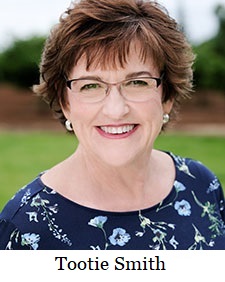







 The bill contains the following details:
The bill contains the following details:
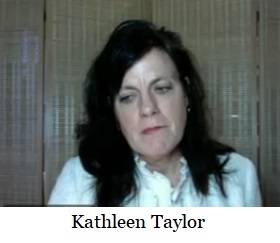
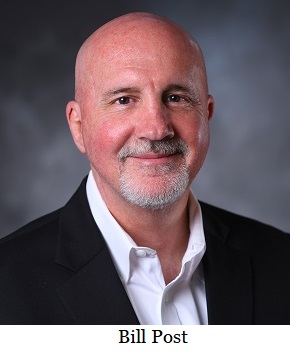


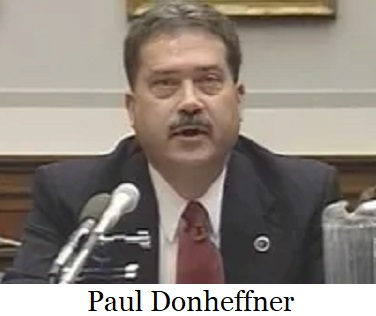
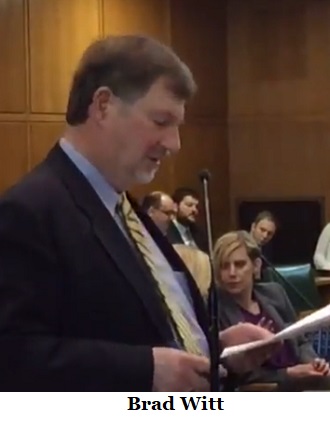


 Mooney’s request was approved by the Multnomah court, and OPDS was eventually billed $32,326.14. When Eric Deitrick, General Counsel of OPDS, was locating information relevant to my most recent public records request, he was surprised to see that public funds from his agency were used in Noorah’s case (and for at least one more of Mooney’s Saudi student defendants). Deitrick told me that this was “problematic,†and said, “Our public defense funds need to go to people who genuinely need those funds. I have no reason to believe the defendants in these cases did, particularly given the ease at which they posted bail.â€
Mooney’s request was approved by the Multnomah court, and OPDS was eventually billed $32,326.14. When Eric Deitrick, General Counsel of OPDS, was locating information relevant to my most recent public records request, he was surprised to see that public funds from his agency were used in Noorah’s case (and for at least one more of Mooney’s Saudi student defendants). Deitrick told me that this was “problematic,†and said, “Our public defense funds need to go to people who genuinely need those funds. I have no reason to believe the defendants in these cases did, particularly given the ease at which they posted bail.â€